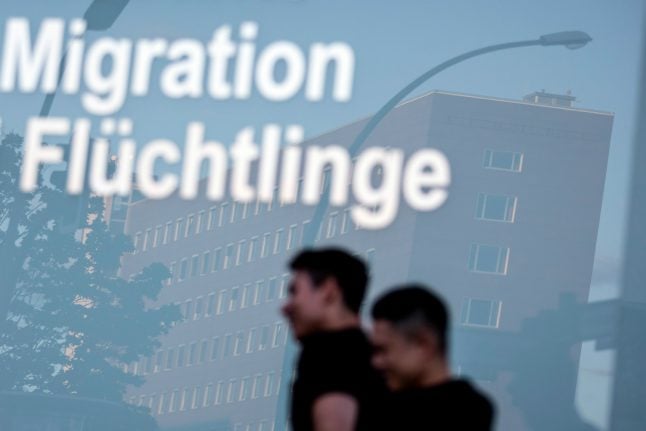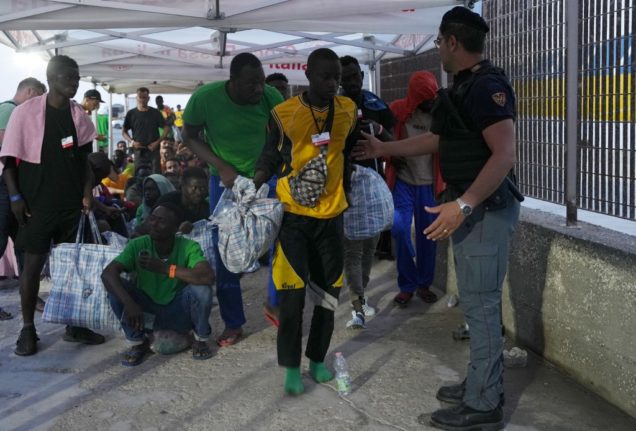A total of 2,062 people were interviewed between Friday and Monday on the topic in a survey conducted by the Insa opinion research institute on behalf of the conservation association Werte-Union.
They were asked their feelings on the following statement: “I fear that the signing of the UN migration pact could lead to additional claims for asylum.”
Almost as many respondents as those who had agreed with the statement replied with “don't know” or gave no response.
SEE ALSO: Merkel defends UN migration pact amid party split on issue
Alternative for Germany (AfD) voters, as well as Union supporters, were particularly worried, the survey found.
However, a total of 22.7 percent of respondents disagreed with the statement and said they did not see any risk of additional asylum claims.
The Werte-Union is an association made up of thousands of conservative members of the centre right Christian Democrats (CDU), led by Chancellor Angela Merkel, and the Christian Socialists (CSU).
Werte-Union chairman Alexander Mitsch said it was the CDU and CSU's task to take people's concerns seriously and to ensure the government did not enter into any agreements it had no control over.
He said there should be a protocol which means Germany can reject “any future legal obligation and consequence from the pact”.
The CDU will discuss and vote on the agreement at its party conference which begins on December 7th.
It's a topic that's proved hugely controversial in the run up to the conference, when Merkel will step down as leader.
The AfD in particular is mobilizing against the pact, but there are also critical voices in the Union, including health minister Jens Spahn and Friedrich Merz, who are both candidates to take over from Merkel.
However, the outgoing Chancellor has defended the agreement, saying it is the “right response” and that it will “solve global problems internationally and together”.
The United Nation's Global Compact for Safe, Orderly and Regular Migration is the first time the world organization has agreed on a list of global measures to tackle the challenges involved in migration for individual migrants, and at the same time to maximize benefits for the countries taking in immigrants.
SEE ALSO: Merkel successor hopefuls bid to bury her migration legacy
The agreement, which is not legally binding, is being formed to deal with the huge number of people from across the world who are leaving their countries to seek refuge elsewhere because of conflict, poverty or other reasons. Germany played a key role in the height of the refugee and migration crisis in 2015, which has resulted in a polarization of opinions across the country.
Among the calls, the pact urges countries to help improve the conditions in migrants' countries of origin to help bring down the number of people who want to move, as well as helping migrants assimilate better in their new country.
The pact is to be adopted by the international community at a meeting in Morocco on 10th and 11th December – directly after the CDU party conference.
Among others, the USA, Hungary, Austria, the Czech Republic, Switzerland, Australia and Slovakia do not want to back the deal.



 Please whitelist us to continue reading.
Please whitelist us to continue reading.
Member comments